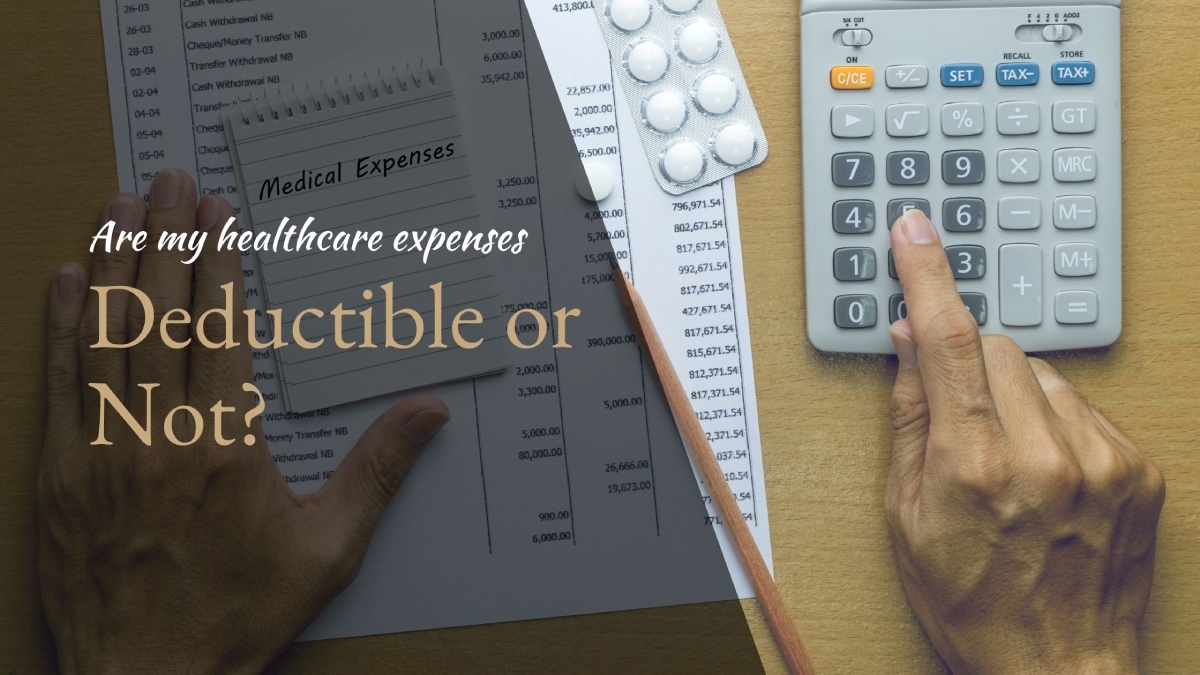Medical and Dental Expenses: What Can You Deduct?

Health is one’s greatest asset. This is why a person’s value decreases as they get older. Or why a history of an illness can mean higher premiums for your life insurance. To put it simply, good health is a key ingredient in achieving your goals, whether it is financial or not.
However, as much as your health adds great value, maintaining it can also be expensive. Thus, the health and wealth paradox. But did you know that there’s a workaround for this?
Minimize the strain of healthcare on your pockets by writing off medical and dental care expenses from your income tax. What’s more, this applies to costs incurred not only for yourself but also for your spouse and dependents. You can do this by itemizing your deductions for a taxable year on your Schedule A (Form 1040), Itemized Deductions.
The medical and dental expenses that exceed 7.5% of your adjusted gross income are deductible.

Does This Apply If You Are Self-Employed?

Itemized deductions on medical and dental expenses are only available to employees. Self-employed individuals can file for a health insurance deduction, which is an income adjustment. It may apply to health insurance coverage for yourself, your spouse, dependents, or even a child (son, daughter, stepchild, adopted child, or foster child) under 27 years old at the end of the year, whether dependent or not.
If you are any of the following, then you may be eligible for this deduction:
- Self-employed and had a net profit for the year reported on Schedule C (Form 1040) or Schedule F (Form 1040).
- A partner with net earnings from self-employment for the year reported on Schedule K-1 (Form 1065), box 14, code A.
- You used one of the optional methods to figure out your net earnings from self-employment on Schedule SE.
- You received wages in 2021 from an S corporation in which you were a more than 2% shareholder. Health insurance premiums paid or reimbursed by the S corporation are shown as wages on Form W-2.
What Medical Expenses Are Deductible And Not Deductible?

Typically, all health expenses for the diagnosis, cure, mitigation, treatment, or prevention of disease, or payments for treatments affecting any structure or function of the body, are deductible. It is impossible to enumerate all deductible items, so it’s better to remember a handful of those expenses that are not deductible:
- Funeral or burial expenses
- Nonprescription medicines
- Toothpaste and toiletries
- Cosmetics
- A trip or program for the general improvement of your health,
- Cosmetic surgery, except when needed to improve a deformity arising from, or directly related to, a congenital abnormality, a personal injury resulting from an accident or trauma, or a disfiguring disease. In that case, the costs incurred are deductible.
- Nicotine gum and nicotine patches that don’t require a prescription
Aside from medical care expenses, you can also deduct the following:
- Admission fees and transportation costs to a medical conference relating to your spouse, or your dependent’s chronic illness
- Transportation costs essential to medical care:
- Fare for a taxi, bus, train, ambulance
- For transportation by personal car:
- Actual out-of-pocket expenses for gas and oil, or
- The standard mileage rate for medical expenses, plus the cost of tolls and parking.
Can You Deduct Medical Insurance Premiums?

Medical insurance premiums for a qualified long-term care insurance policy, covering qualified long-term care services, are deductible if you pay for them yourself. Employer-sponsored premiums are not deductible, except when included in box 1 of your Form W-2, Wage and Tax Statement.
Unsure whether your medical and dental expenses are qualified for the deduction? You can utilize the Internal Revenue Service’s Interactive Tax Assistant. But if you need a more personal touch or have other tax-related matters to consult, you can rely on one of our trusty tax specialists to walk you through the details and process.
